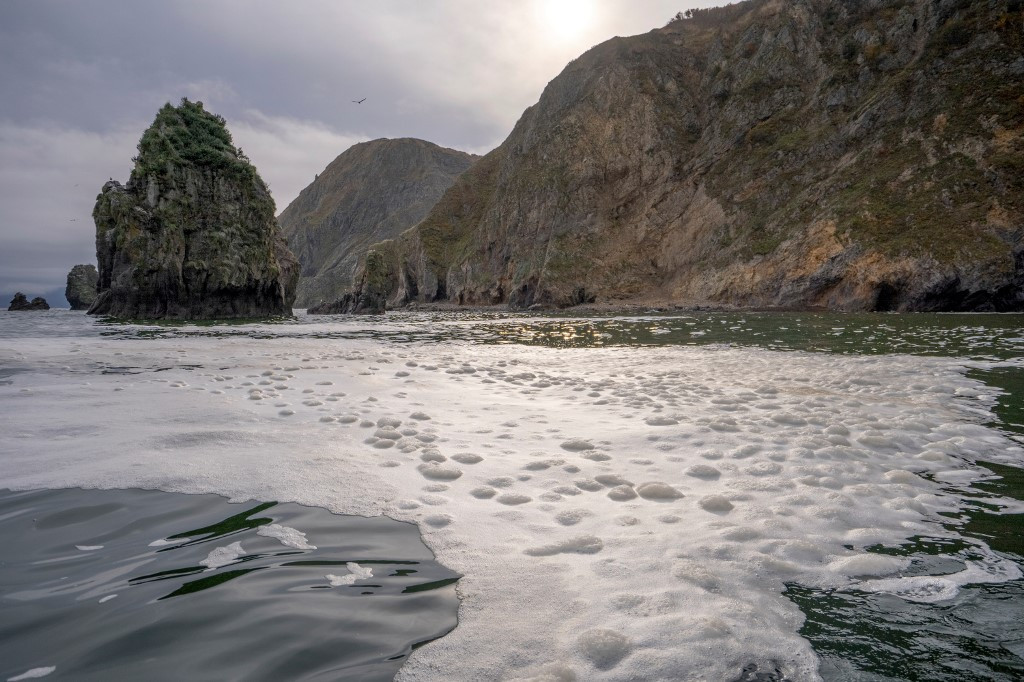Popular Reads
Top Results
Can't find what you're looking for?
View all search resultsPopular Reads
Top Results
Can't find what you're looking for?
View all search resultsKamchatka marine life death caused by algae: Russian scientist
The mass death of sea creatures in Russia's Kamchatka region was caused by toxins from microalgae rather than man-made pollution.
Change text size
Gift Premium Articles
to Anyone
T
he mass death of sea creatures in Russia's Kamchatka region was caused by toxins from microalgae rather than man-made pollution, a senior Russian scientist said on Monday, citing preliminary findings of an investigation.
Locals on the volcanic peninsula in the Pacific raised the alarm in September as surfers experienced stinging eyes and sea creatures, including octopuses, seals and sea urchins, were found dead on the shore.
Scientists suggested that up to 95 percent of marine life living along the seabed in the affected area had died.
Conservation activists had raised concern that the source of the pollution could be a Soviet era storage ground for poisonous chemicals on Kamchatka that might have seeped out into the sea.
"I am sure that we are facing a large-scale phenomenon, but not an uncommon one for Kamchatka, called harmful blooming algae," the vice president of Russia's Academy of Sciences, Andrei Adrianov, told journalists Monday.
He said that water samples showed a "high concentration only of Gymnodinium (microalgae)", which produces "toxins that affect invertebrates".
Adrianov added that the same toxins could have also caused the symptoms experienced by divers and surfers.
Read also: Russian sea pollution forms massive moving slick
Last week, scientists said the pollution had formed a 40-kilometer-long slick which has been moving south towards Japan and the disputed Kuril islands.
Activists of Russia's Greenpeace branch have voiced concern that the "situation is not improving" and dead animals continue washing up on beaches.
Adrianov, on the other hand, said "nature is regenerating itself and very quickly".
Earlier probe results presented by regional authorities said the local bays showed above-permitted levels of phenol and petroleum products. Locals have been warned to avoid the beaches.
Coming just months after a massive oil leak in Siberia, the latest incident sparked a public outcry with a petition calling for an "open investigation" into the events so far garnering over 175,000 signatures.
Meanwhile, Russian investigators have launched a criminal probe over the illegal handling of dangerous substances and "pollution of the marine environment".











